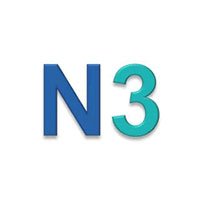The GP Next Generation Access project will increase bandwidth on N3 for 70% of English GP practices by March next year.
The NHS Informatics Business Plan 2012-13 says a 70% roll-out of the N3 refresh programme (about 7,000 sites) will be completed by March 2013.
The N3 broadband network will be upgraded to a new broadband service using 21C DSL technology in place of the IP stream that is currently used.
The project is being led and funded by NHS Connecting for Health and will be delivered by the N3 service provider, BT.
A Department of Health spokesperson said the increased bandwidth will lead to “improved upstream and downstream speeds for users.”
They added that the project would deliver; “modern and more reliable customer premises equipment to support delivery of the NGA products” and “retirement of first generation access products like Integrated Services Digital Network where possible.”
Dr Manpreet Pujara, one of CfH’s GP clinical leads, told last year’s EMIS National User Group conference that all sites will receive new equipment and should experience significant increases in bandwidth.
Dr Pujara said practices with copper wiring should benefit from downstream rates of up to 20 Mb/s and those with fibre to the cabinet rates of up to 40 Mb/s.
The switchover will involve up to three visits per site and Dr Pujara said practices could expect a down time of up to an hour – although he said that in most cases it was more likely to be 10 minutes.
Cumbria GP Dr William Lumb said there had been “significant issues with ‘out of the box N3’” in his area, so they decided to invest £1m a year in a community of interest network that provides a fibre connection to every practice in Cumbria.
He believed money for an N3 refresh would be better spent on connecting practices with fibre as this removed the physical barriers to mobility and connectivity of the NHS network.
“It’s not just about bandwidth or a more reliable connection, it’s what you can do with that connection,” Dr Lumb added.
Fellow GP Neil Paul said Cheshire also has the benefit of a COIN, but he was not sure how or if it would continue to be funded in the future.
“A better faster upgraded N3 is therefore of interest as we might have to start relying on it and it might save us the cost of the fixed links we have in place if it is good enough,” he said.

